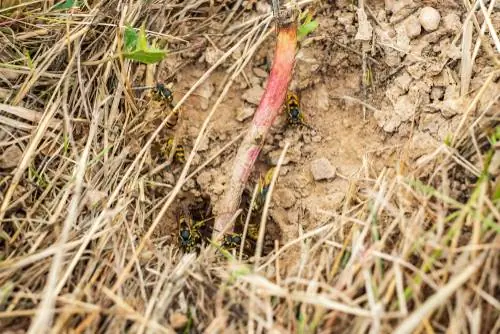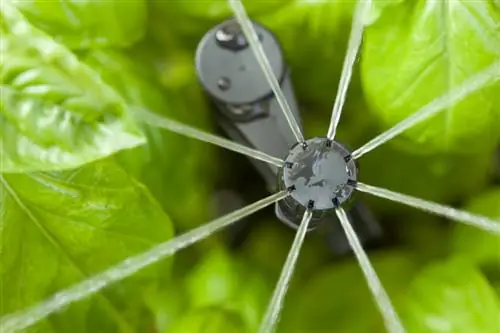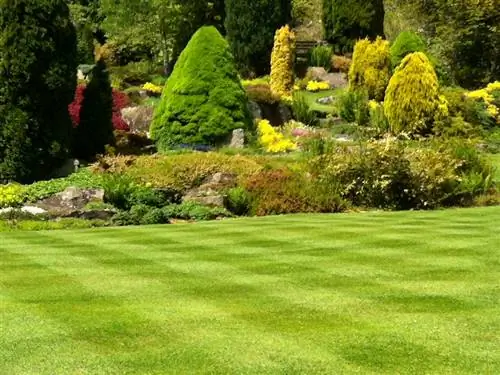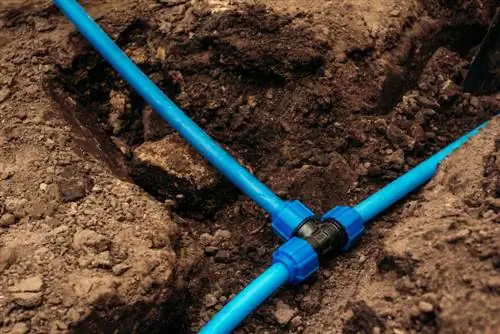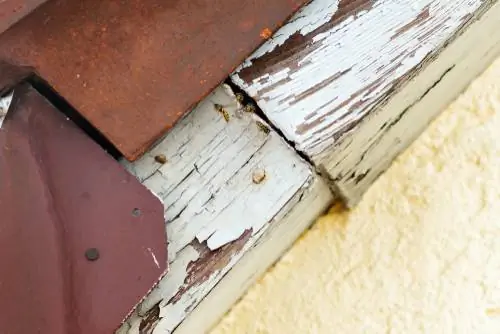- Author admin leonars@hobbygardeners.com.
- Public 2023-12-16 16:46.
- Last modified 2025-01-23 11:22.
Small, sandy bumps in the lawn and a buzz of insects above - this spectacle can indicate an underground wasp nest. But panic is usually not necessary. Because they are probably harmless to humans - even useful species.
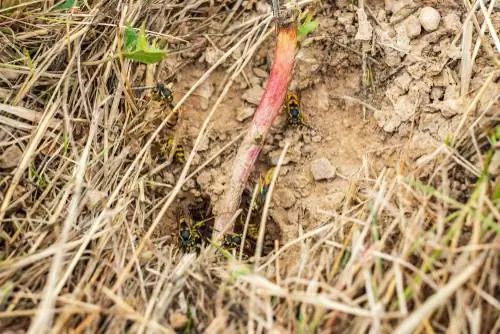
What to do if there are wasps in the lawn?
Wasps in the lawn can indicate an underground nest. These are often harmless and useful grave wasp species that raise piles of sand and do not pose a threat to people. In the case of German or common wasps, a beekeeper can be commissioned to relocate the nest.
Usually only harmless wasps nest in the garden soil
Basically, there are some species of wasps that set up their nests underground, at least seasonally. This also includes the annoying and stinging German and common wasps. These species are also the ones that persistently annoy us at the coffee table or at the barbecue and can inflict painful stings.
If you are unlucky enough to have a colony of these species settle in your garden soil, this is therefore critical. Especially close to the ground, unwanted frightening can lead to dangerous defensive attacks by insects. When German or common wasps choose a place to nest in the ground, it is usually an abandoned mouse or mole burrow. So you dig less yourself.
If you find piles of sand from which wasps fly in and out, it is most likely a type of digger wasp. Digging wasps include the circular wasp, the common sand wasp and the beewolf. These species dig nesting tunnels in sandy soil, thereby creating the characteristic piles. But they are completely harmless to us.
To remember:
- Wasps nesting in the garden soil are only dangerous if they are common or German wasps
- Not dangerous for humans: digger wasps, recognizable by piles of sand at the nest entrances
How you should behave
If you have a nest of German or common wasps in the garden soil, you should consider hiring a beekeeper to relocate the nest. However, if you want to tolerate the animals, we recommend cordoning off the area around the nest for your own safety.
With a digging bee nest, you don't need to worry about your own safety. Although the species is also equipped with a stinger, it can only use it to kill insect prey and cannot penetrate human skin. Because the animals can prove to be very useful in the garden by destroying pests and pollinating flowers, you should tolerate them if possible and mow around the piles of sand with the lawnmower. If you want to prevent re-establishment the following year, fill the areas with plenty of soil in the fall.

